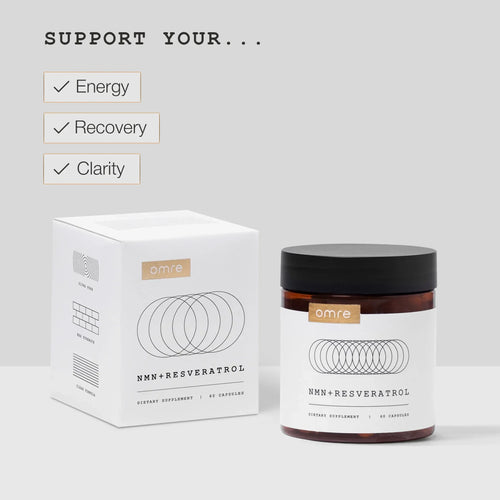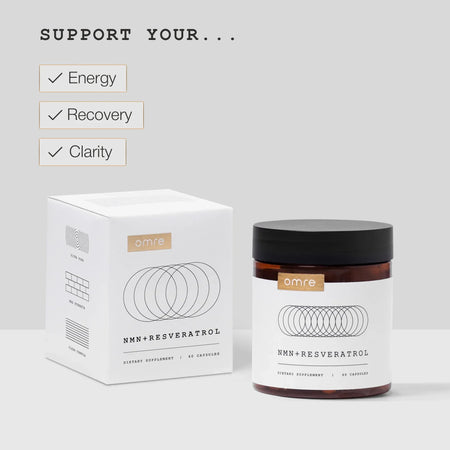Table of Contents
Feeling drained and low on energy can feel like you're stuck in a fog, while depression adds an extra layer of weight.
Did you know that certain vitamins might gently nudge you toward feeling a bit better?
While they aren’t magic pills, they can complement other treatments and improve your overall sense of well-being.
From supporting your brain's natural chemistry to helping your body handle stress, these vitamins may offer a helping hand when life feels a bit heavy.
NMN + RESVERATROL
Cellular NAD+ booster with ultra‑pure NMN and Resveratrol, at research‑backed doses.*
Understanding the Link Between Nutrition, Energy, and Mental Health
What we eat shapes how we feel—both physically and emotionally. Vitamins and minerals are like tiny helpers that fuel your body and mind.
They’re involved in everything from producing energy to regulating mood. When you’re running low on certain nutrients, it’s like trying to drive a car on empty—it doesn’t get you far.
Research suggests that deficiencies in specific vitamins, like Vitamin D or B12, are often linked to feelings of fatigue and depression (1).
These nutrients work behind the scenes to support neurotransmitters, like serotonin and dopamine, which help maintain a stable mood.
It’s not just about eating right; it’s about giving your body the tools it needs to thrive. By filling nutritional gaps, you may notice improved energy and a lighter mental load.
While vitamins aren’t a cure, they can be part of the bigger picture when managing your health.
How to Determine Your Nutritional Needs
Before reaching for a supplement, it’s smart to understand what your body actually needs. Many symptoms of deficiency, like low energy or mood swings, overlap with other conditions. This is why it’s helpful to talk to a doctor or dietitian—they can guide you toward what’s right for you.
A simple blood test can uncover whether you're low on vitamins like D, B12, or iron. From there, you’ll know whether adding certain foods or supplements to your routine might help. Remember, this isn’t a one-size-fits-all situation—your nutritional needs are as unique as you are.
The 9 Best Vitamins for Energy and Depression
Here are some of the best vitamins that may help with energy and depression:
Vitamin D: Supports mood regulation and serotonin production.
Vitamin B12: Helps with energy production and neurotransmitter balance.
NMN: Boosts cellular energy and reduces oxidative stress.
Vitamin B9 (Folate): Produces serotonin, dopamine, and norepinephrine.
Vitamin B3 (Niacin): Enhances brain function and combats fatigue.
Iron: Improves oxygen transport and neurotransmitter synthesis.
Magnesium: Regulates mood and stress response.
Calcium: Aids in neurotransmitter activity and emotional balance.
1. Vitamin D
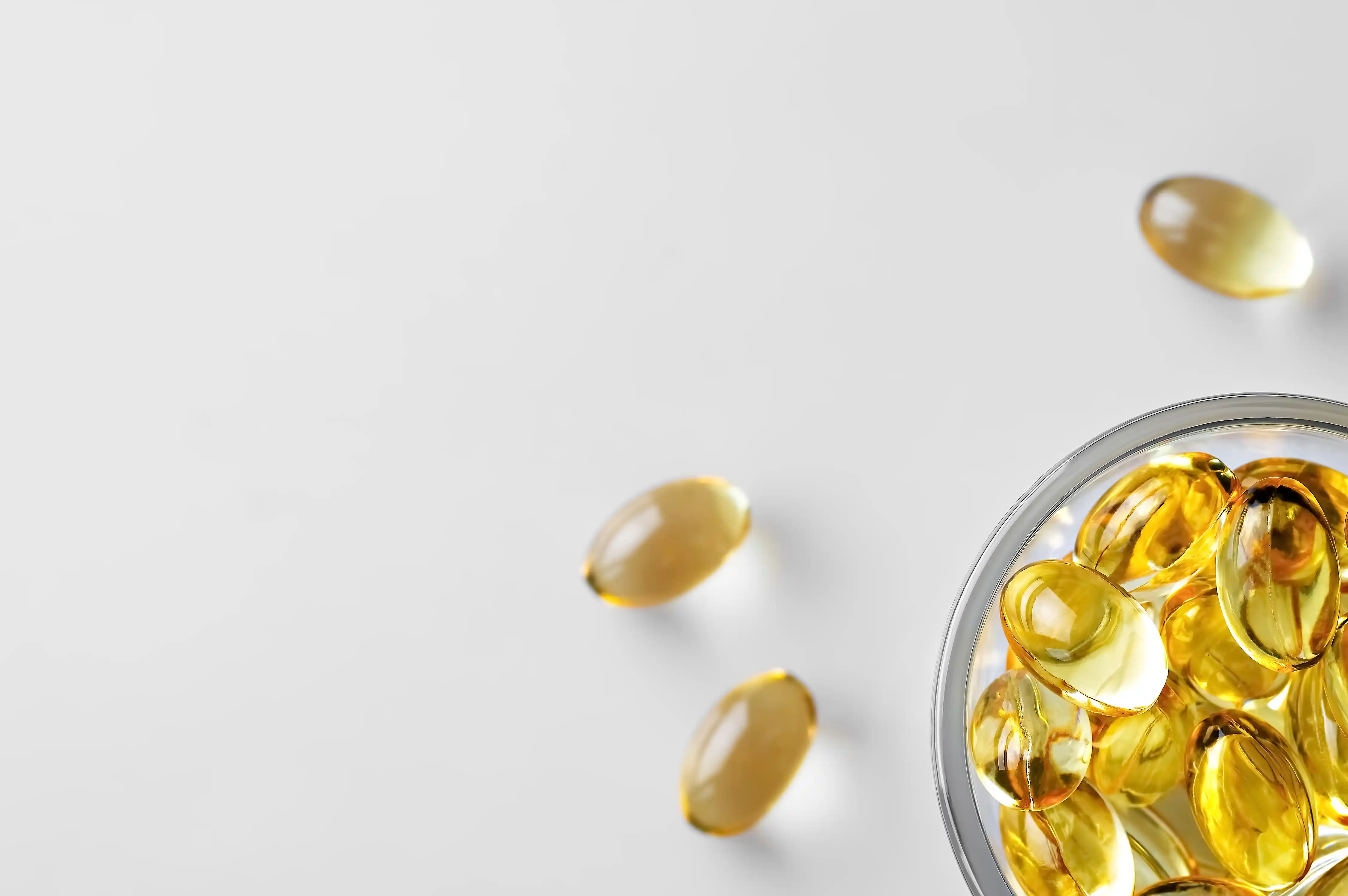 Vitamin D, known as the "sunshine vitamin," plays an important role in mood regulation and mental health. Studies have found that people with depression often have lower levels of Vitamin D, suggesting a potential link between deficiency and depressive symptoms (2).
Vitamin D, known as the "sunshine vitamin," plays an important role in mood regulation and mental health. Studies have found that people with depression often have lower levels of Vitamin D, suggesting a potential link between deficiency and depressive symptoms (2).
While the exact mechanisms aren’t fully understood, it’s thought that Vitamin D may support serotonin production, reduce inflammation, and enhance overall brain function.
Natural sources of Vitamin D include fatty fish like salmon and mackerel, egg yolks, fortified milk, and cereals.
You can also get Vitamin D from sunlight, though factors like skin tone and location can impact how much you absorb. Spending 15–30 minutes in the sun a few times a week may help boost your levels.
For those with limited sun exposure, supplementation might be helpful. Vitamin D3 is often recommended as it’s more effective than D2 in raising blood levels.
Be cautious about dosage, though—too much Vitamin D can lead to adverse effects like nausea or kidney problems. Always consult your doctor to determine what’s right for you.
2. Vitamin B12
-v1738607637215.webp) Vitamin B12 is essential for brain health and energy production. A deficiency can cause fatigue, mood swings, and even symptoms of depression.
Vitamin B12 is essential for brain health and energy production. A deficiency can cause fatigue, mood swings, and even symptoms of depression.
Studies suggest that supplementing with B12 may improve depressive symptoms, particularly in those who are deficient. It works by supporting the production of neurotransmitters that regulate mood and by maintaining healthy nerve cells (3).
Good dietary sources of B12 include fish, poultry, dairy products, and fortified cereals. For vegetarians and vegans, who are at higher risk of deficiency, fortified foods or supplements are often necessary.
B12 supplements are generally safe, as excess amounts are excreted through urine. However, it’s always best to check with your doctor, especially if you’re on medications that might interfere with absorption, like metformin or antacids.
3. NMN (Nicotinamide Mononucleotide)
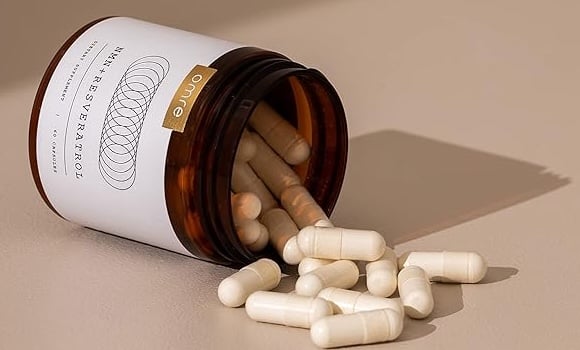 NMN is a rising star in the world of supplements, praised for its potential to support energy and mental health. It works by increasing levels of NAD+ (nicotinamide adenine dinucleotide), a molecule critical for cellular energy production.
NMN is a rising star in the world of supplements, praised for its potential to support energy and mental health. It works by increasing levels of NAD+ (nicotinamide adenine dinucleotide), a molecule critical for cellular energy production.
Studies suggest NMN may reduce oxidative stress in the brain and improve mitochondrial function—two factors closely tied to depression and fatigue (4).
Early research also points to its ability to enhance mental clarity and overall vitality (5).
Unlike some other vitamins, NMN is not readily available in food, making supplementation the most practical option.
By supporting cellular energy and reducing oxidative damage, NMN offers a promising pathway for those looking to improve mood and combat low energy levels.
If you are looking for a high-quality NMN supplement, Omre NMN + Resveratrol stands out as a premium choice.
With 99% pure NMN and 98% pure micronized Resveratrol in research-backed doses, this supplement is designed to support NAD+ levels effectively.
Its added BioPerine® enhances absorption, making it more impactful than many alternatives. Taken in the morning with a small amount of fat, such as yogurt or olive oil, Omre NMN + Resveratrol is a convenient and thoughtful addition to your wellness routine.
4. Vitamin B9 (Folate)
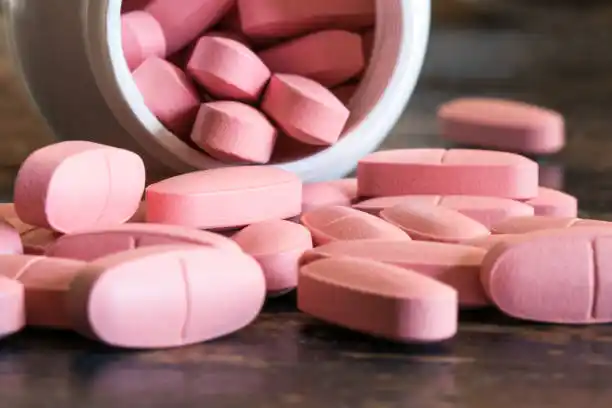 Folate, or Vitamin B9, plays a critical role in producing serotonin, dopamine, and norepinephrine—key neurotransmitters that regulate mood.
Folate, or Vitamin B9, plays a critical role in producing serotonin, dopamine, and norepinephrine—key neurotransmitters that regulate mood.
Studies have found that people with low folate levels are more likely to experience depression (6). Folate is also linked to how the body metabolizes antidepressants, with deficiencies potentially reducing their effectiveness.
You can find folate in dark green vegetables like spinach and kale, legumes such as lentils and chickpeas, and fortified grains. For those struggling to meet their needs through diet, supplements might be beneficial.
It’s worth noting that folate is the natural form, while folic acid is the synthetic version found in many supplements.
If you have specific conditions like the MTHFR gene mutation, your body may process natural folate more effectively than folic acid. Consult with a healthcare provider for personalized advice.
5. Vitamin B3 (Niacin)
-v1738609152544.webp) Vitamin B3, or niacin, is involved in energy production at a cellular level and may help regulate mood. While research on niacin and depression is limited, some studies suggest it might support brain health by enhancing neurotransmitter function (7).
Vitamin B3, or niacin, is involved in energy production at a cellular level and may help regulate mood. While research on niacin and depression is limited, some studies suggest it might support brain health by enhancing neurotransmitter function (7).
Niacin also helps the body convert food into energy, which can combat fatigue associated with low mood.
Dietary sources of niacin include poultry, fish, whole grains, and nuts. If supplementing, be aware that high doses can cause flushing—a harmless but sometimes uncomfortable warming sensation. Opt for a slow-release formula if this is a concern.
As with any supplement, it’s best to start with a low dose and increase only under medical supervision. Too much niacin can lead to liver problems, so moderation is key.
6. Iron
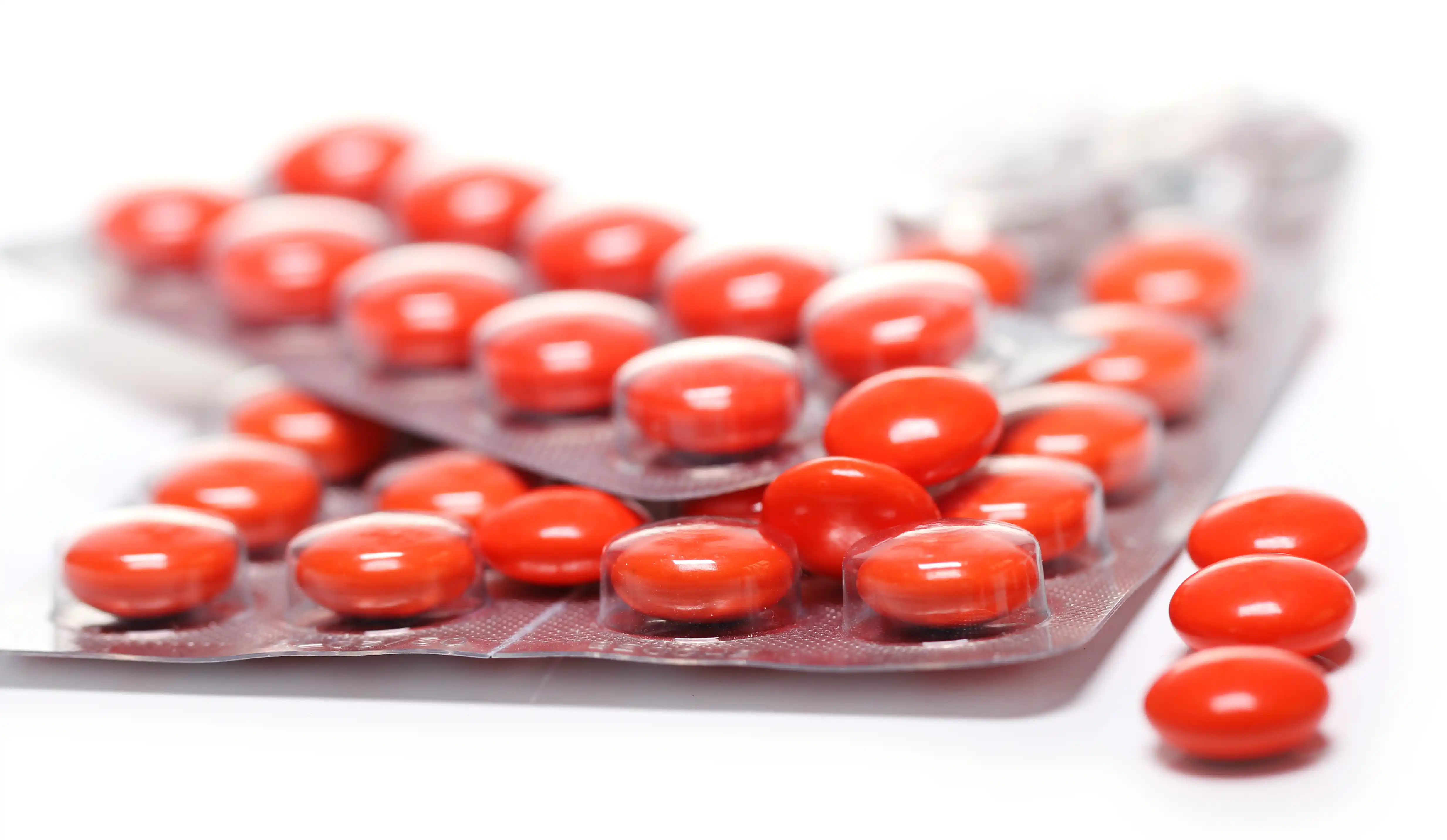 Iron is essential for transporting oxygen throughout the body and supporting brain function. Research has found that iron deficiency is linked to symptoms of depression, including fatigue and poor concentration (8). Iron is also crucial for producing neurotransmitters like serotonin and dopamine, which regulate mood.
Iron is essential for transporting oxygen throughout the body and supporting brain function. Research has found that iron deficiency is linked to symptoms of depression, including fatigue and poor concentration (8). Iron is also crucial for producing neurotransmitters like serotonin and dopamine, which regulate mood.
Dietary sources of iron include red meat, poultry, seafood, spinach, and lentils. Pairing iron-rich foods with Vitamin C—such as a glass of orange juice with your meal—can enhance absorption. For vegetarians, beans, fortified cereals, and tofu are good options.
Iron supplements can help if you’re deficient, but they should only be taken under medical supervision. Too much iron can lead to side effects like constipation or even toxicity, so finding the right balance is key.
7. Magnesium
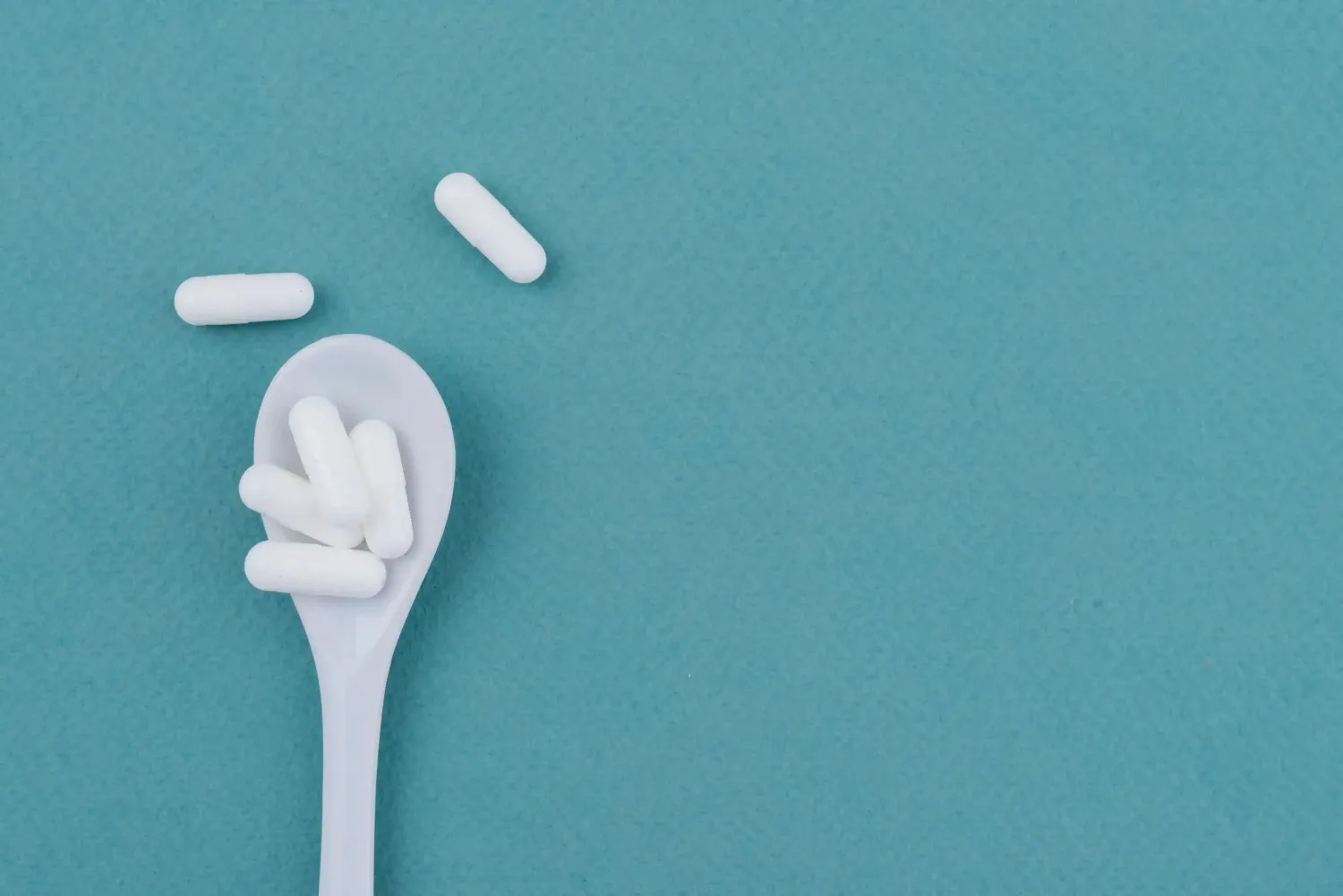 Magnesium, often called "nature's relaxant," plays a vital role in brain health and mood regulation.
Magnesium, often called "nature's relaxant," plays a vital role in brain health and mood regulation.
Studies suggest that low magnesium levels are associated with increased symptoms of depression and anxiety (9). Magnesium supports neurotransmitter activity and helps the body respond to stress, making it a helpful nutrient for managing mental health.
Magnesium-rich foods include leafy greens like spinach, nuts, seeds, and whole grains. If your diet doesn’t provide enough, magnesium supplements are available, but start with small doses to avoid potential side effects like diarrhea.
Taking magnesium in the evening can promote relaxation and improve sleep, which is especially helpful for those experiencing fatigue or insomnia related to depression. Always consult a healthcare provider to determine the appropriate dosage for your needs.
8. Calcium
-v1738609623782.webp) Calcium isn’t just for bones—it also supports nerve function and neurotransmitter activity, which are critical for mood regulation.
Calcium isn’t just for bones—it also supports nerve function and neurotransmitter activity, which are critical for mood regulation.
Studies have linked low calcium levels to depressive symptoms, especially in women (10). Calcium plays a role in signaling between brain cells, which helps regulate emotions and mental clarity.
Dairy products like milk, yogurt, and cheese are excellent sources of calcium, but there are non-dairy options too, such as fortified plant milks, tofu, and leafy greens like kale.
Calcium supplements are another option but should be taken with food to improve absorption and minimize side effects like bloating. Balance is important, as excessive calcium intake can interfere with the absorption of other minerals like magnesium and zinc.
NMN + RESVERATROL
Cellular NAD+ booster with ultra‑pure NMN and Resveratrol, at research‑backed doses.*
Combining Vitamins with Other Natural Strategies for Better Results
Vitamins can play a helpful role in managing energy levels and mood, but they aren’t a magic fix. Pairing them with other healthy habits can make a real difference.
Small lifestyle changes, like eating well, staying active, and prioritizing sleep, all work together to support your mental and physical well-being.
Think of it as building a team for your health: vitamins are one player, but they need the support of good habits to perform their best. Here are a few strategies to help you get the most out of your efforts:
Eat a balanced diet: Include whole foods rich in nutrients, like fruits, vegetables, lean proteins, and healthy fats.
Stay active: Regular movement—whether it’s a daily walk, yoga, or dancing—can lift your mood and increase your energy.
Practice mindfulness: Simple techniques like deep breathing or meditation can help reduce stress and improve focus.
Get enough sleep: Aim for 7-9 hours each night to give your body and mind time to recharge.
Stay hydrated: Dehydration can make fatigue and low mood worse, so drink plenty of water throughout the day.
Combining these strategies with vitamin supplementation creates a well-rounded approach to feeling better naturally.
Safety Tips and Considerations
While vitamins can be helpful, it’s important to use them safely. Too much of a good thing isn’t always better—excessive intake can sometimes cause harm.
For example, high doses of Vitamin D can lead to kidney issues, and too much iron might cause digestive problems or toxicity. Always stick to the recommended doses and consult your doctor before starting a new supplement.
Keep in mind that supplements can interact with medications. For instance, magnesium can interfere with certain antibiotics, and high doses of calcium might affect the absorption of thyroid medications. If you’re taking prescriptions, let your healthcare provider know about any supplements you’re considering.
Lastly, focus on quality over quantity. Choose reputable brands that have been tested for safety and efficacy. Look for labels like "USP Verified" or similar certifications, which can give you peace of mind that the product meets safety standards.
Taking these precautions can help you avoid unnecessary risks and make the most of your supplementation journey.
Talk to Your Doctor First
It’s tempting to jump straight into supplements, especially when you're feeling drained or low. But before trying to fix things on your own, it's always best to check in with a doctor.
Fatigue and mood changes can have many causes, from vitamin deficiencies to underlying health conditions that need a trained eye to catch.
A full workup—including blood tests and a discussion about your symptoms—can give you a clearer picture of what’s really going on. You might not even need supplements, or there could be something else at play that requires a different approach.
Instead of guessing, let a professional guide you so you’re addressing the root of the issue, not just the symptoms.
Conclusion
Incorporating the right vitamins into your daily routine can help support energy and mental health, but they’re just one piece of the puzzle.
From Vitamin D’s mood-boosting properties to NMN’s potential to enhance cellular energy, these nutrients work best when paired with a healthy lifestyle.
Always approach supplementation thoughtfully, consulting professionals and focusing on quality products tailored to your needs.
For those looking to try NMN, Omre NMN + Resveratrol offers a premium option with ultra-pure ingredients designed for maximum efficacy. -v1738547296240.webp) Start supporting your cellular health today—Check availability and see the difference for yourself.
Start supporting your cellular health today—Check availability and see the difference for yourself.




